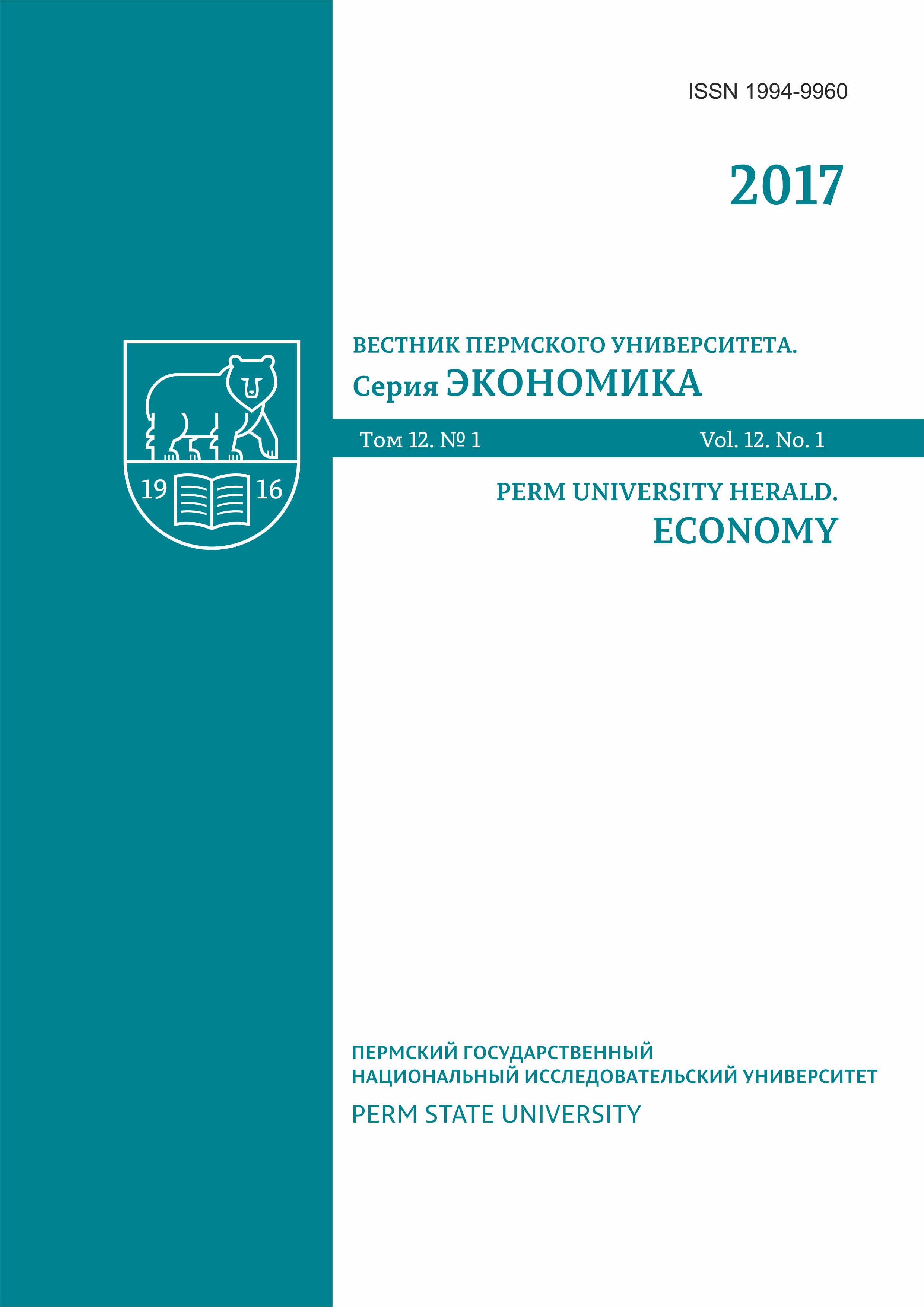Determination of the vector of new industrial policy on the basis of neo-schumpeterian theory
DOI:
https://doi.org/10.17072/1994-9960-2017-1-5-22Abstract
The subject of the article is to study the choice of the strategic directions of industrial policy on the basis of the identification of relevant factors in the development of the industrial system, as well as to develop and test the assumptions of the modern neo- schumpeterian theory of development, which is applied to the description of the evolution of industrial sectors. The main hypothesis of the research is the assumption that the development of modern industrial system goes beyond the well-known principle of “creative destruction”. This principle is aggressively being popularized by J. Schumpeter and has firmly entered into the intellectual framework of economic theory. It is also submitted to a different principle – “combinatorial compounding”, that means technologies are combined providing a new quality of a system. At the same time a substantial part of such combinations does not require significant additional resources and in its turn it creates new modes and forms of industrial development in the economy of inter-specific resources. Speculation in the study advocates that industry evolution detects a change in the weight of its driving forces and permanent definition of the value of each factor will adjust the methods of policy, in particular the industrial policy. To achieve the main objectives of the study a method of modeling, correlation and regression analysis and factor analysis are applied to establish relationships between the parameters of the system, to identify relevant factors that play a dominant role in the changes. The use of these methods determines the main directions of actions in the framework of measures formed by an industrial policy, as well as specific measures that determine the dynamic of the development of individual sectors of industry and enterprises. The factor analysis concludes that the transition of labor resource from “old” industries into “new” ones is very low in Russia, and the increase in the number of people being employed in the new productions is due to the incoming resource. According to the authors the factors are ranged in the following order in Russian industry (in mechanical engineering as the main industrial sector, in particular): technology, capital, institutions (the state development program) and labor. This confirms the assumption that labor has significant limitations in Russian industry and these limitations affect the long-term development of the national industry.
Keywordsneo-schumpeterian theory of development, industrial policy, technologies, manufacturing sectors of industry, development factors, government programs, a region, an enterprise
For citationTatarkin A.I., Sukharev O.S., Strizhakova E.N. Determination of the vector of new industrial policy on the basis of neo-schumpeterian theory. Perm University Herald. Economy, 2017, vol. 12, no. 1, pp. 5–22. DOI 10.17072/1994-9960-2017-1-5-22
AcknowledgementsThis article is dedicated to the memory of the academician, Head of the Institute of Economics of the Ural Branch of the Russian Academy of Sciences Alexander Ivanovich Tatarkin. The present research is published after the death of A.I. Tatarkin who had participated in the research as a member of the above-mentioned composite authors. We are grieving about the untimely death of A.I. Tatarkin and are very grateful for his participation and help in the conducted research. The results of the study will be published in a series of articles. The first part of the prepared research is published in this issue. We express our gratitude to the editorial board of the journal «Vestnik Permskogo Universiteta. Seriya “Economika” = Perm University Herald. ECONOMY» and personally to the professor Tatyana Vasil’evna Miroliubova for the publication.
The authors appreciate the joint stock company «Karachaevsky plant “Electrodetal”» for the provided data (Table 9).
References1. Schumpeter I. Teoriia ekonomicheskogo razvitiia. Capitalizm, sotsializm i demokratiia [The theory of economic development. Capitalism, socialism and democracy]. Moscow, Eksmo Publ., 2007, 864 p. (Antropologiia ekonomicheskoi mysli [Anthology of economic thought]). (In Russian).
2. Sukharev O.S. Economicheskaiia dinamika: institutsional’nye i structurnye faktory [Economic dynamics: institutional and structural factors]. Moscow, LENAND Publ., 2015. 240 p. (In Russian).
3. Tatarkin A.I. Promyshlennaia politika kak osnova sistemnoi modernizatsii ekonomiki Rossii [Industrial policy as the basis for system modernization of the Russian economy]. Problemy teorii i praktiki upravleniia [Theoretical and Practical Aspects of Management], 2008, no. 1, pp. 8–21. (In Russian).
4. Tatarkin A.I., Romanova O.A. Promyshlennaia politika: genesis, regional’nye osobennosti i zakonodatel’noe obespechenie [Industrial policy: genesis, regional features and legislative support]. Economika regiona [Economy of Region], 2014, no. 2, pp. 9–21. (In Russian).
5. Sukharev O.S. Teoriia restrukturizatsii economiki. Printsipy, kriterii i modeli razvitiia [The theory of economic restructuring. The principles, criteria and development models]. Moscow, LENAND Publ., 2016. 256 p. (In Russian).
6. Strizhakova E.N. Promyshlennaia sistema Rossii: factory razvitiia [Industrial system of Russia: development factors]. Vestnik instituta ekonomiki Rossiiskoi Akademii nauk [Vestnik of the Institute of Economics of the Russian Academy of Sciences], 2016, no. 4, pp. 53–70. (In Russian).
7. Sukharev O.S. Economicheskii rost bystroizmeniaiushcheisia ekonomiki: teoreticheskaia post-anovka [Economic growth is rapidly changing economy: theoretical formulation]. Economika regiona [Economy of Region], 2016, no. 2, pp. 43–54. (In Russian). doi 10.17059/2016–2–3.











